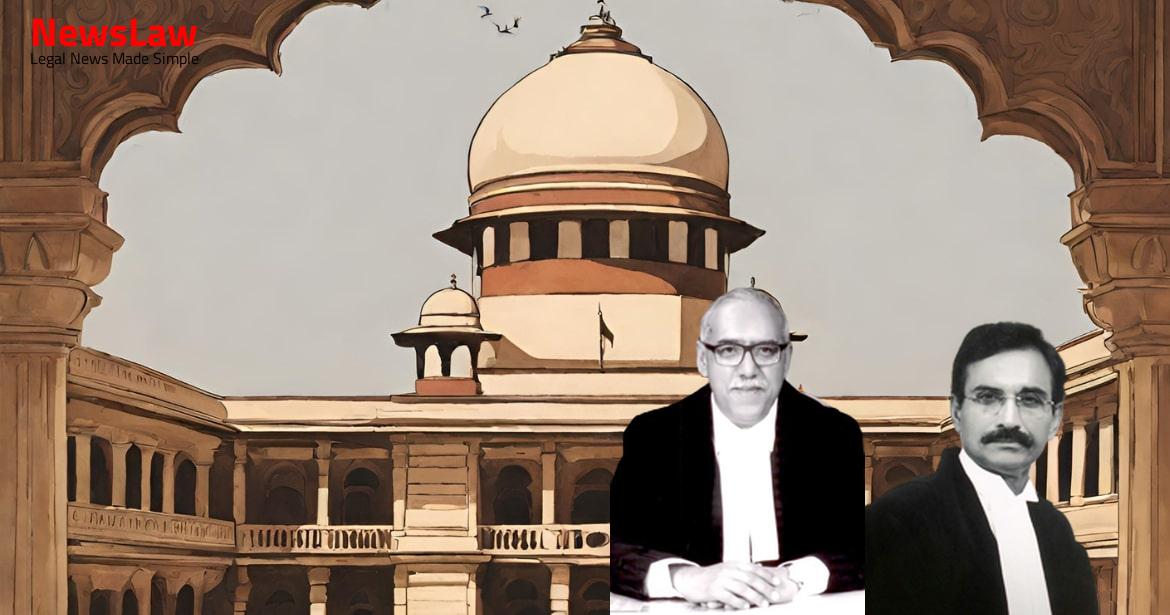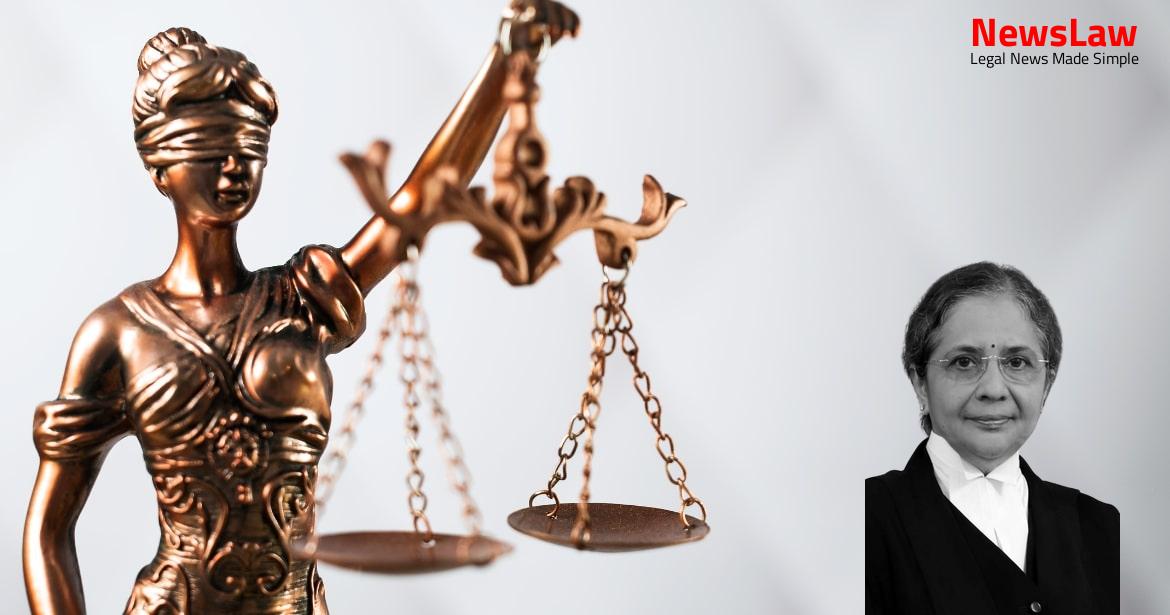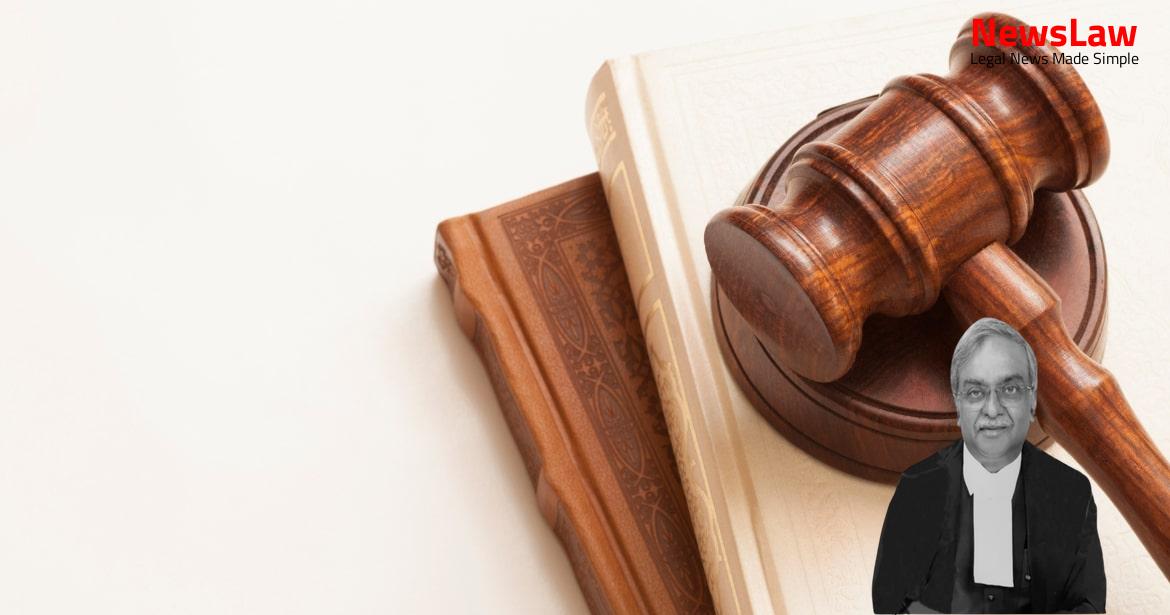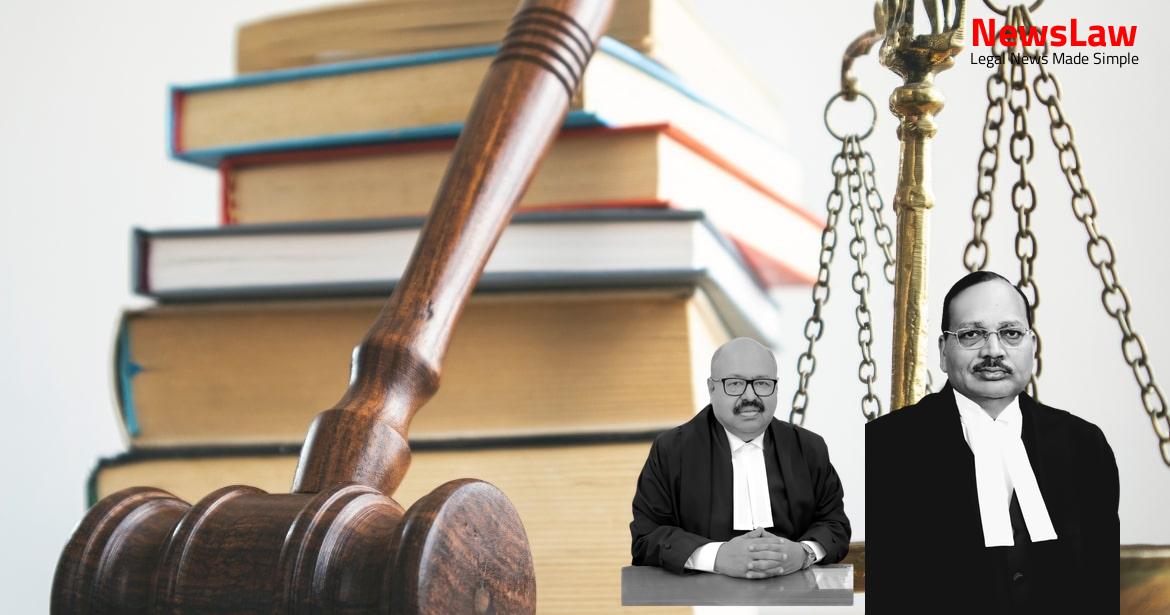In a recent legal case, the court examined the intricacies of proving adoption under the Hindu Adoption and Maintenance Act of 1956. The court’s analysis focused on the essential legal requirements that must be met for an adoption to be legally recognized. The case sheds light on the significance of complying with the stipulations of the Act to establish the validity of an adoption. Let’s delve deeper into the court’s legal analysis in this complex adoption case.
Facts
- The City Civil Court dismissed the suit filed by the Appellant for a declaration that she is the adopted daughter of the Respondent and Late Narasimhulu Naidu.
- The Respondent argued that the Appellant has no rights in the properties under the Hindu Adoptions and Maintenance Act 1956.
- Narasimhulu Naidu, the deceased, worked as a Lift Operator in APSEB and retired in 1999, with records referring to the Appellant as his daughter.
- The Appellant sought partition of the properties of Narasimhulu Naidu, including a building at Srinivas Nagar East, Ameerpet, Hyderabad.
- The Appellant claimed she was brought up by the Respondent and her husband as their daughter, even though she was the daughter of the Respondent’s younger sister.
- The Appellant mentioned instances from school and government records where she was listed as the daughter of the Respondent and her husband.
- The trial court found that the Appellant could not prove the ceremony of adoption.
- The High Court re-evaluated the evidence but found no proof that the adoption was conducted according to the Act of 1956.
- The evidence presented by the Appellant was deemed insufficient by the High Court.
- The High Court upheld the trial court’s judgment, dismissing the suit.
- The Appellant, aggrieved by the judgment, filed an appeal which was also dismissed by the High Court.
Also Read: Judicial Review of Answer Key in Teacher Selection Process
Arguments
- The Appellant’s counsel relied on the judgment in L. Debi Prasad (Dead) by Lrs. v. Smt. Tribeni Devi & Ors. to argue that subsequent events can be considered for proving adoption.
- It is highlighted that the Appellant, being very young at the time of adoption, cannot prove the manner in which the adoption took place.
- Evidence presented on record indicates that the Appellant was treated as the daughter of Narasimhulu Naidu and the Respondent husband in various official documents such as School and College records as well as Narasimhulu Naidu’s service record.
- The Appellant’s argument is that the adoption should be recognized based on the practical treatment received, unless proven otherwise in accordance with the provisions of the Act of 1956.
- The Respondent argued that there is no pleading in the plaint regarding the particulars of the ceremony of giving and taking over.
- The mandatory requirement of proving the factum of adoption under Sections 7 and 11 of the Act of 1956 has not been complied with by the Appellant.
- Evidence of the grand-mother of the Appellant supported the case of the Respondent, stating that the Appellant was never adopted.
- Without actual adoption being proved, any amount of evidence provided cannot assist the Appellant in getting relief.
Also Read: Assessment of Undisclosed Income: Legal Analysis
Analysis
- The Appellant failed to prove that she was adopted by the Respondent and her husband as per the conditions of the Act of 1956.
- The Respondent and her husband denied adopting the Appellant but stated she was brought up by them.
- There was no proof of the ceremony of giving and taking in adoption provided by the Appellant.
- The Appellant’s request for partition of properties was denied by the Respondent, leading to the filing of the Civil Suit.
- Section 7 of the Hindu Adoption and Maintenance Act provides that a male Hindu of sound mind and not a minor has the capacity to adopt a son or daughter.
- The adoption must be made in compliance with the conditions mentioned in the Chapter.
- The child to be adopted must be given and taken in adoption by the parents or guardian concerned with the intent to transfer the child to the adoptive family.
- A specific condition mentioned is that the consent of the wife is mandatory for the validity of the adoption.
- The L. Debi Prasad (Dead) by Lrs. case is not applicable to the present case as it pertains to an adoption in 1892, while the current adoption took place after the 1956 Act.
- The Appellant failed to establish her adoption despite being treated as a daughter by the parties involved.
- The Act of 1956 mandates that adoption must comply with the conditions mentioned in Chapter I of the Act.
- Essential conditions like the consent of the wife and the actual adoption ceremony have not been proven in this case.
- The case of Ghisalal v. Dhapubai (Dead) by Lrs. & Ors. emphasized the mandatory requirement of the wife’s consent for proving adoption.
- No error found in the High Court judgment
- Appeal is dismissed
Also Read: Jurisdiction and Substantial Questions of Law in Land Dispute Case
Case Title: M.VANAJA Vs. M.SARLA DEVI (DEAD) THROUGH LRS. (2020 INSC 288)
Case Number: C.A. No.-008814-008814 / 2010



